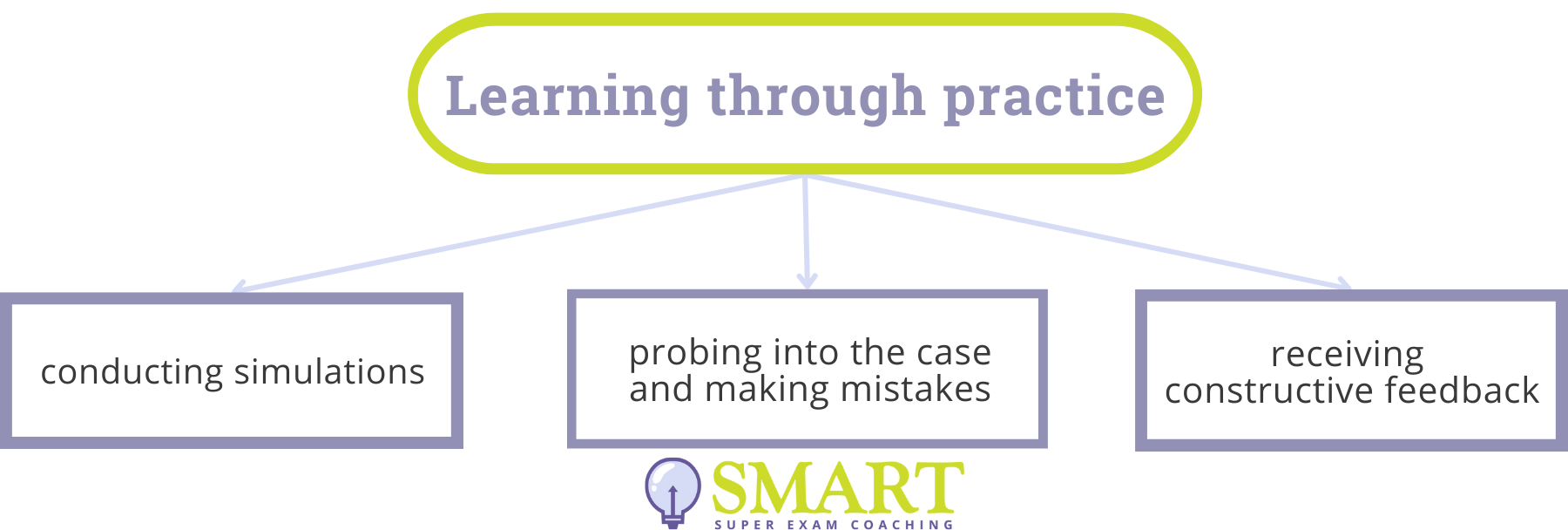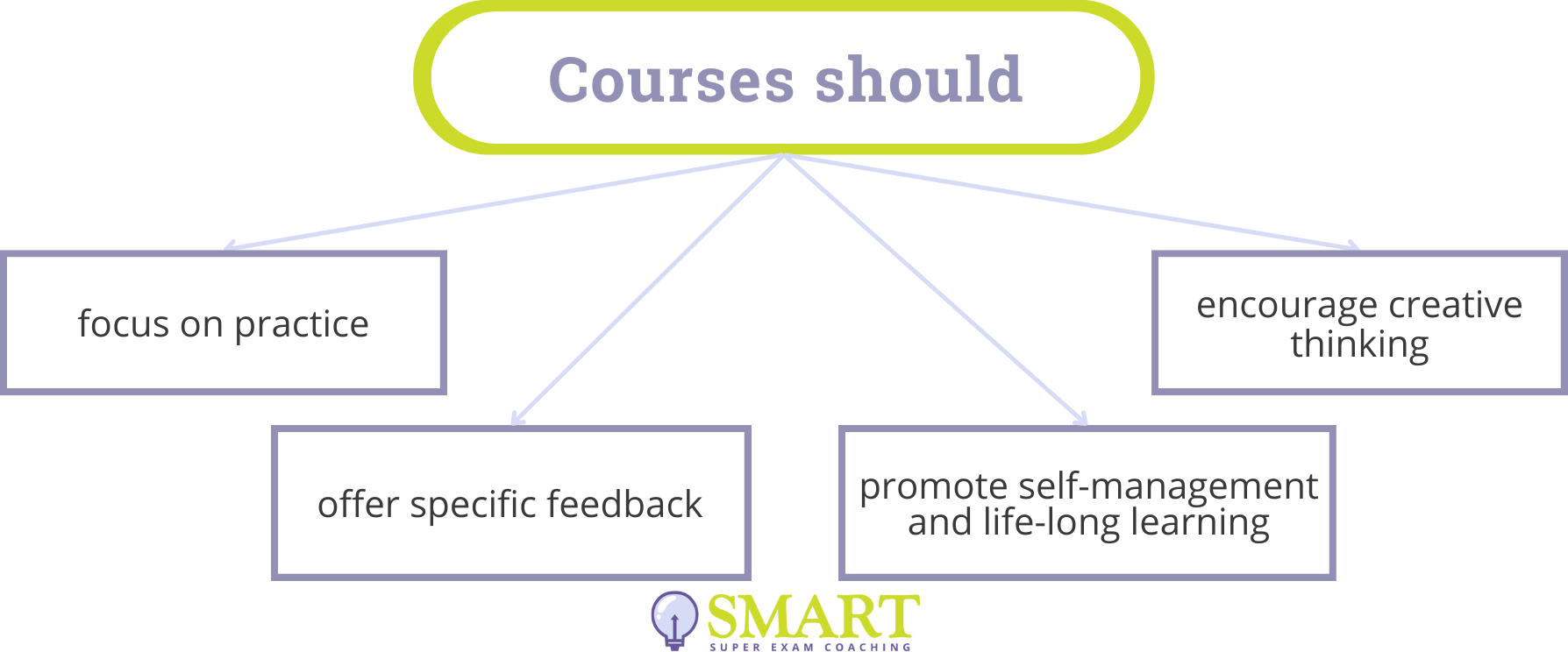No matter where you are in your SQE journey, whether it’s SQE1 or SQE2, our expert resources are here to support you throughout:
SQE1 Course
SQE2 Training
SQE2 Mocks
Retake SQE
One of the most prominent features of the 21st century is certainly the diversification of higher education. We already see differences in the form, curriculum, forms of instruction, and structure of educational institutions caused by rapid social and technological changes.
Indeed, classical higher education has been bound to change – due to the growing gap between learning and life. The biggest problems of higher education seem to be its disengagement from practice, and its exclusive emphasis on academic achievement. In legal higher education, an attempt to solve this problem was an LPC law course – the introduction of which however did not manage to drastically improve the situation.
We believe the transition from classical formal higher education to a more advanced and effective model should rely on two pillars: modernisation and traditionalisation. As part of the modernisation process, legal education must above all become more practice-oriented in order to provide candidates with the skills required for real-life legal work. In addition, it is important to impart to law students the knowledge of modern technological advances, and teach them to operate in a digital environment. Finally, modernisation of education heavily relies on the skills of life-long learning, and the ability to apply the knowledge and skills learnt at the university to continuous self-improvement and professional growth.
Another fundamental pillar of modern legal education is traditionalisation – which can be defined as imparting unique knowledge, methods, approaches, practices and values within the organisation. This allows to build up the entire law firm’s expertise in its legal field.
Therefore, higher education for law professionals should become:
- more practice-oriented
- more modernised (i.e., technological and keeping up with the times)
- more focused on building up corporate values and traditions.

These objectives have shaped the Smart course that seeks to tackle each of them in the most effective way.
Objective 1: focus on practice
Being a practical legal skills assessment, the SQE2 was indeed created with the future in mind. It is designed to test how the candidate can apply knowledge in a simulated real-life situation: whether (s)he as a solicitor will be able to provide qualified legal services, to conduct interviews, draft documents, search for relevant information, and write legal opinions. These legal skills cannot be learnt from books, notes, lectures, seminars or even group workshops.
Here, the only possibility available to aspiring solicitors is learning through practice – by:
- conducting simulations,
- probing into the case and making mistakes,
- receiving constructive feedback from the tutor with the focus on specific areas for improvement – instead of a generic model answer.

Using practical simulations allows to adopt an individual approach to building up knowledge of law, while at the same time encouraging the student to think out of the box, and to look for innovative arguments and solutions. Practical simulations are the principal teaching method of the original Smart methodology – which is based on active teaching and mistake-driven learning.
Within this approach, a candidate’s performance is individually assessed by an experienced tutoring solicitor, with separate marks calculated for the student’s knowledge and skills. In this, the SQE tutor’s task is:
- to identify mistakes in the candidate’s legal knowledge, and to suggest topics for revising and expanding it;
- to share experiences and best practices with lawyers on their route to qualification – both in terms of professional skills, and of the SQE2 exam techniques.
Having completed intensive practical training, the aspiring solicitor comes up with his/her own approach. This is particularly important for such individual activities as interviews and advocacy – each of which requires an individual perspective. Beyond the SQE, practical simulations are an effective tool to preserve and build up corporate knowledge and expertise. Training young lawyers how to resolve legal issues and legal problems and work on common types of cases handled by your law firm can increase the firm’s output and enhance its reputation, which allows your company to thrive in good times and survive during the times of crisis. Does your law firm have offices in multiple cities and countries? Would you like to raise your profile and differentiate your firm from competitors by passing knowledge and business practices from one generation to another? If these questions resonate with you, we can offer individual solutions that will cement your firm’s status.
Objective 2: focus on modernisation
What impact does modernisation have on the legal profession? How can the system of legal education be reshaped to keep up to date? The answer to these questions is in essence reduced to one word – digitalisation.
For the future of the legal profession, digitalisation poses two distinct challenges:
- Artificial intelligence is already taking over some legal jobs. The use of AI in ‘smart contracts’ for instance allows to fully eliminate human involvement. Compared to lawyers, ‘smart contract’ technology is faster, more accurate, and able to learn. This requires the solicitor of the future to be creative, and able not just to apply various professional knowledge and skills, but also to generate original solutions – something computers cannot do.
- The information revolution with its continuing advancements in computer technology and the explosive emergence of the Internet has caused an exponential increase in availability of information, and accelerated the speed of data transfer. As a result of such a growing social, economic, and technological role of information, our contemporary reality has exploded with new types of knowledge, new business models, new social phenomena, to name but a few. Alongside advantages, this poses significant risks that we could not even imagine yesterday. In these ever changing circumstances, a solicitor must be able to get over unforeseeable and atypical hurdles arising out of private and public legal relations – which is impossible without mastering the vital skill of ongoing self-development, and choosing to treat every professional experience and interaction as a learning opportunity.

Aiming at imparting standard residual knowledge, traditional higher education does not teach to think out of the box, to look for new practical solutions. This is also true of the more practice-based Legal Practice Course – as it is based on model answers and group feedback, which is natural for institutions with large numbers of students. To remain profitable, this business model requires high uniformity and low variability, and this means no individual approach.
At the same time, there always are exceptions – for universities that have already started innovating and testing new teaching approaches that will surely shape the future of higher education. One such exception is the Russell Group representing 24 leading UK universities, all of which aim at delivering high-quality, research-based education. Universities like those in the Russell Group certainly produce graduates with high-level skills and fresh ideas, but in the big picture this is the exception that only proves the rule.
Online education
A solution that can save the general situation is online education – as a more cost-effective and flexible model, a perfect tool for approaching each learner individually. However, this online learning model is not without its challenges, the biggest one being organisation and control. Colleges – as well as some SQE training providers – have established the practice of developing a timetable with step-by-step instructions for each day. However, people understand that this approach tends to cultivate lack of initiative and irresponsibility, and for this reason seems rather archaic and ineffective. The workflow can be a lot more effective if each employee sticks to her own deadlines and moves at her most suitable pace.
Developing the lawyers’ self-management skills should thus be considered one of the key tasks of colleges and SQE training providers – which has led us to design the Smart superexam online e-learning platform.
All in all, to keep up with the times while adhering to time-honoured traditions of quality and excellence, law schools may benefit from designing courses that:
- focus on practice for
- improving legal skills
- building up knowledge of national law
- mastering the SQE2 exam techniques
- offer specific feedback from experienced tutoring solicitors
- encourage creative thinking and original solutions through an individual approach
- promote self-management and life-long learning.

Obviously, the same features can be – and should be utilised by effective SQE2 courses offered to future lawyers seeking admission to the roll of solicitors of England and Wales. On the other hand, we hope these ideas will also be helpful for law firms looking for effective workplace education and training programmes. For businesses where training is not a core business activity, it can be a viable opportunity to strengthen the core competencies of their employees without disrupting their business life cycle.
How the Academy of Smart Lawyers Can Help You with the SQE
Join our dynamic community, where expert tutors, foreign-qualified lawyers, and individuals from diverse backgrounds collaborate. We specialise in SQE2 preparation through mock simulations, emphasising ‘active teaching’ and ‘mistakes driven learning’ to ensure you receive the best SQE prep course available.
- Expert tutors who have successfully passed the SQE.
- Specialised support for foreign-qualified individuals and those without a legal background.
- Comprehensive SQE2 training, including SQE2 mock exams.
- Valuable tips and tricks for mastering both SQE1 and SQE2, with access to essential SQE1 materials, SQE MCQs, and targeted SQE lectures.
- Ongoing support for your professional growth.